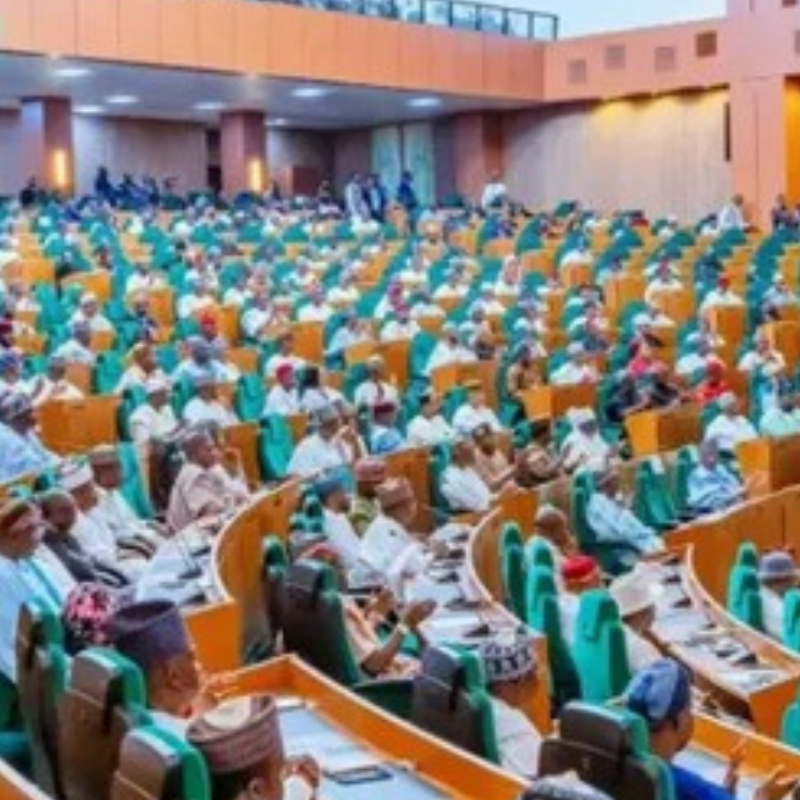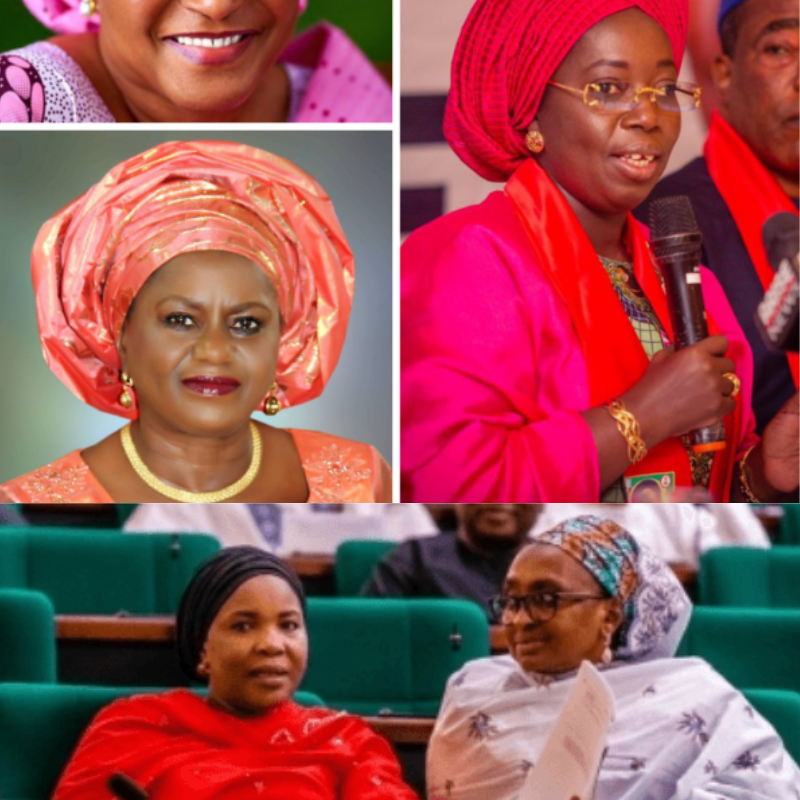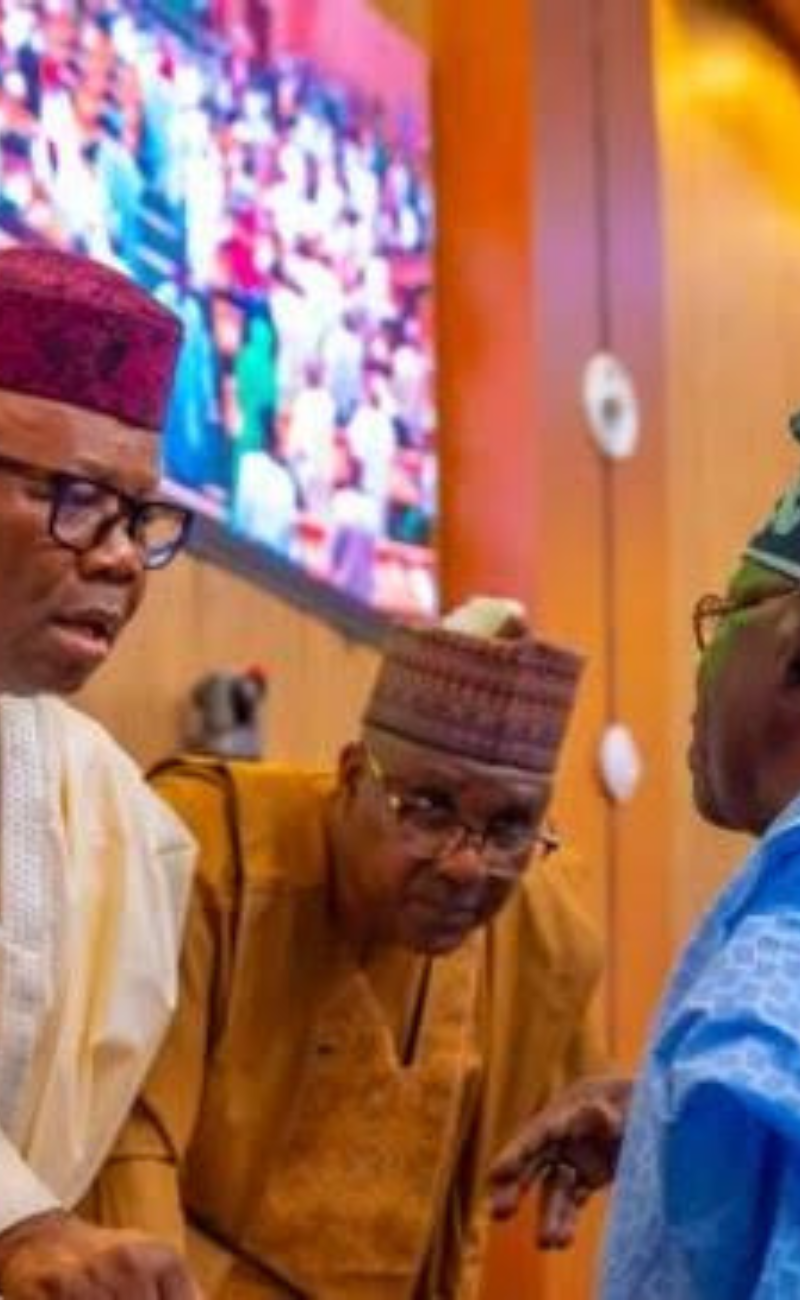In this Gender Equality and Social Inclusion (GESI) tracker, we will highlight the motions introduced in the 10th House of Representatives from June 2023 to June 2025 that focused on gender-related and inclusivity issues.
![]()
The Big Picture
Records show that by the midterm of the 10th House of Representatives (June 2023 to June 2025), a total of 1,116 motions were considered. Out of these, 234 were found to be related to GESI, accounting for roughly 21 percent of all motions raised during this legislative period.
This signals a growing, though still insufficient, recognition by lawmakers of the critical need to address the concerns of Nigeria’s marginalized populations, including women, youth, persons with disabilities (PWDs), marginalized communities, and internally displaced persons (IDPs).
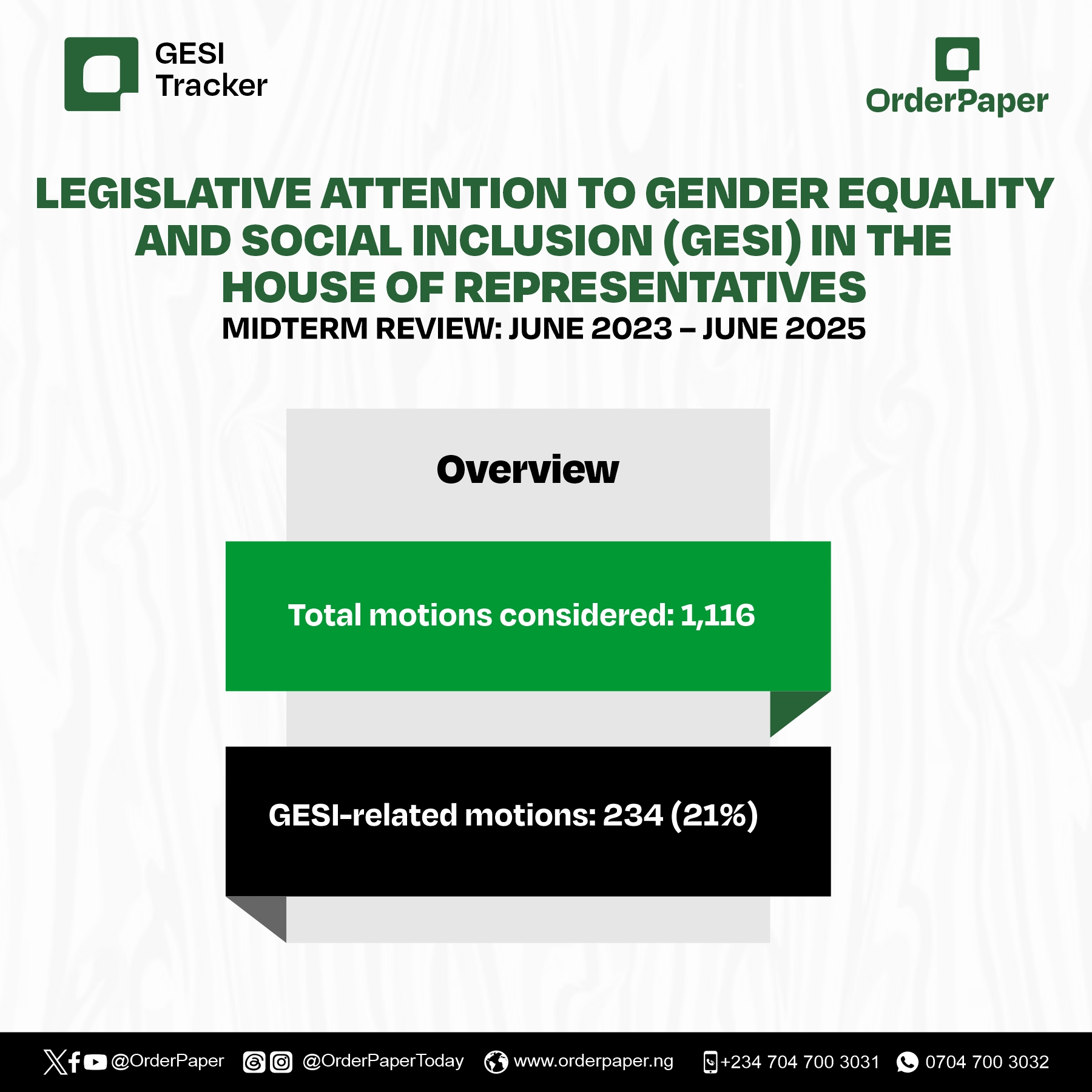
Out of the 234 GESI motions, 34 were directly focused on GESI priorities. They addressed urgent issues related to inclusive governance, legal protections for vulnerable groups, social welfare, and fairness in access to basic services and representation.
The remaining 200 motions were considered GESI-related, as they dealt with broader humanitarian, economic, or security challenges that disproportionately affect excluded populations.
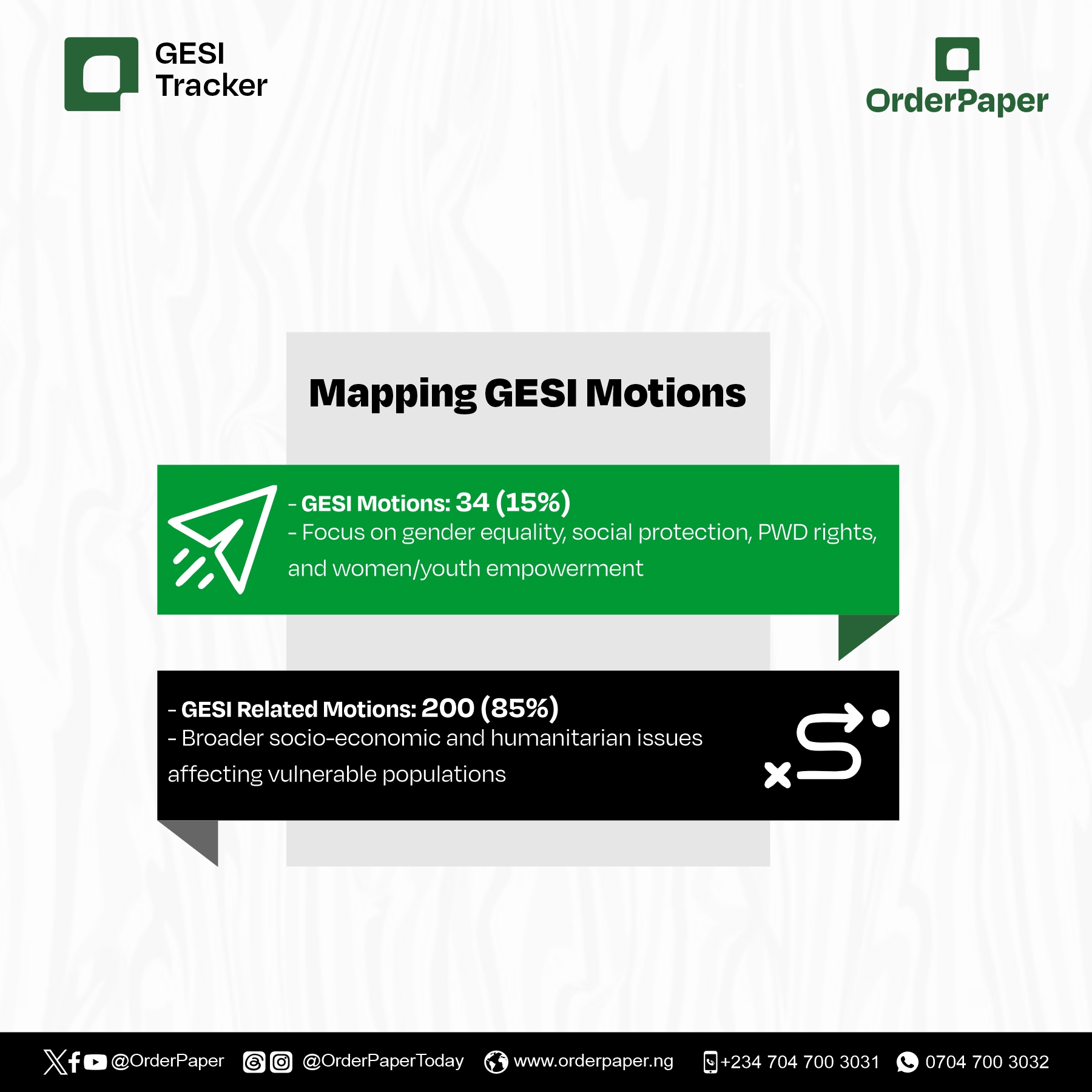
GESI-Related Motions
Thematically, 77 motions focused on humanitarian responses for people displaced by natural disasters. Another 85 addressed conflict-related displacements and security crises, while 11 were centered on public health interventions such as maternal care, health insurance access, and medical funding.
Additionally, 61 motions concentrated on empowering women and youth, advancing disability rights, expanding education access, palliative support, and investigating and strengthening mechanisms for social inclusion.
Read Also: Only 3 of 100 Motions Directly Spotlight inclusion in 10th Senate | GESI Tracker
GESI-prioritized Interventions
Among the most notable direct GESI motions was a call by Rep. Isa Mohammed Anka (APC, Zamfara) for the establishment of IDP camps in several conflict-affected local government areas in Zamfara state.
On disability rights, Rep. Kafilat Ogbara (APC, Lagos) and Rep. Lanre Okunola (APC, Lagos) led calls to enforce the Discrimination Against Persons with Disabilities (Prohibition) Act, 2018, while Rep. Dawodu Bashiru (APC, Lagos) advocated for an investigation into public building accessibility for persons with disabilities.
Health and education were also reurring themes. Rep. Adedayo Samuel (APC, Lagos) raised a motion to address Nigeria’s high maternal mortality rate. Rep. Jafaru Leko (APC, Bauchi) called for the activation of the Basic Healthcare Fund in Bauchi State, and Rep. Bashiru Dawodu (APC, Lagos) pushed for the National Health Insurance Authority to extend coverage to vulnerable Nigerians.
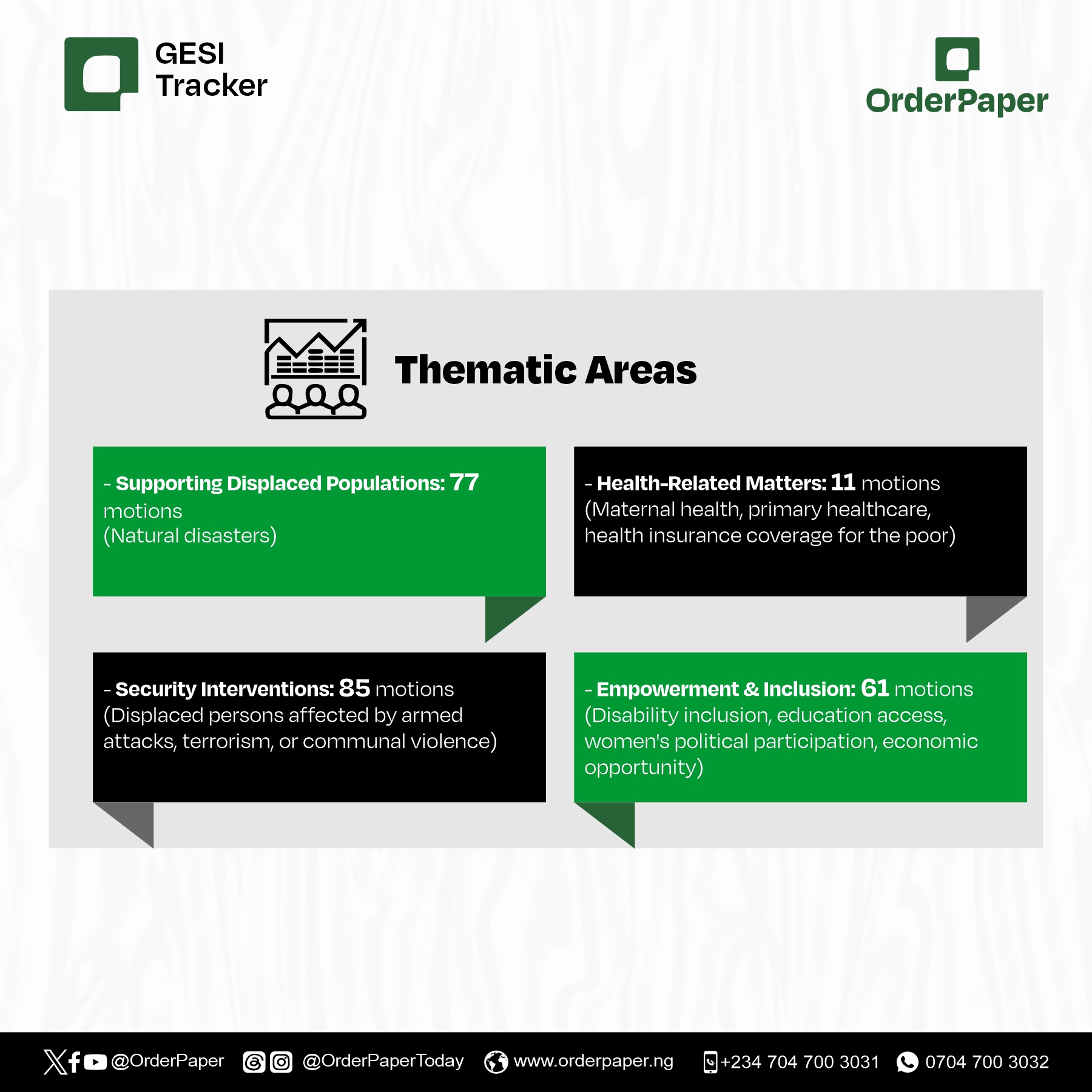
On the education front, Rep. Terseer Ugbor (APC, Benue) sought further legislative action to improve access to student loans, while Rep. Olamijuwonlo Alao-Akala (APC, Oyo) raised the issue of Nigeria’s growing population of out-of-school children. Relatedly, Rep. Obinna Aguocha (LP, Abia) called for full enforcement of every child’s right to basic education under the Universal Basic Education Scheme.
Women’s rights and inclusion featured prominently as well. Rep. Billy Osawaru (APC, Edo) sponsored a motion on implementing the 35 percent affirmative action target for women in appointments, and Rep. Blessing Amadi (PDP, Rivers) advocated for more training and institutional support for women in politics.
Rep. Kafilat Ogbara (APC, Lagos) also raised multiple motions commemorating International Women’s Day and the International Day of the Girl Child, urging stronger safeguards against violence and increased investment in girls’ leadership and well-being. Rep. Awaji-Inombek Dagomie Abiante (PDP, Rivers) further spotlighted the disturbing rise in femicide and homicidal violence against women, demanding national attention.
Read Also: The 29 Senate Motions that Address Vulnerabilities | GESI Tracker
Several motions addressed economic empowerment and social protection. These included Rep. Muhammad Muktar’s (APC, Jigawa) motion to support NYSC graduates transitioning into the labour market, Rep. Jesse Okey-Joe Onuakalus’s (LP, Lagos) proposal to develop a skills acquisition centre in Lagos for youth empowerment, and Rep. Canice Nwachukwu’s (APC, Imo) call for agribusiness training tailored to youth and women. Rep. Ali Isa (PDP, Gombe) and Rep. Madiki Aliyu (NNPP, Kano) each raised separate motions urging the establishment of a national living wage to cushion the living conditions of Nigeria to meet the economic realities. In like manner, Rep. Billy Osawaru (APC, Edo) advocated for the reinstatement of the National Social Investment Programme in light of worsening economic hardship.
Several motions also focused on transparency and accountability in the management of pro-poor policies. Rep. Abass Adigun (PDP, Oyo) called for an investigation into the use of Conditional Cash Transfer funds, while Rep. Morufu Adewale (PDP, Osun) questioned the formula adopted for the distribution of ₦1.1 trillion to 15 million households under the scheme. Rep. Tijani Kayode (APC, Kwara) demanded scrutiny of funds allocated to alternative schooling and out-of-school children interventions.
In an especially alarming motion, Rep. Kwamoti La’ori (PDP, Adamawa) raised the issue of illegal harvesting and commercialization of human eggs in Nigeria, a human rights and gender-based violation requiring urgent action.
Finally, Rep. Joshua Obika (LP, FCT) led a motion calling for the resettlement, compensation, and integration of indigenous communities displaced within the Federal Capital Territory, further emphasizing the intersecting issues of displacement, social justice, and inclusion.
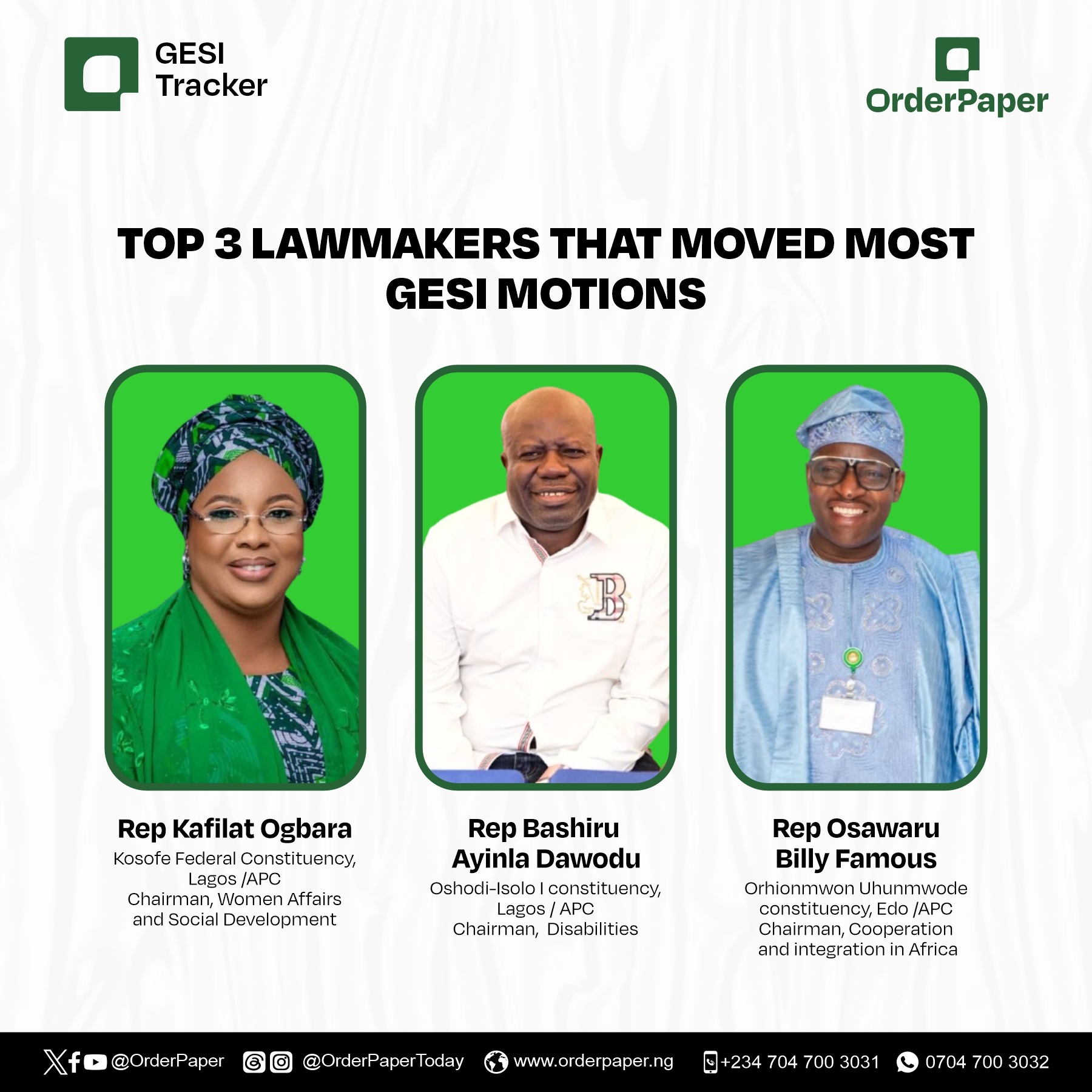
Strategic Observations
- Disability inclusion featured in at least 6 motions, ranging from enforcement of accessibility to economic inclusion.
- Women’s rights and representation gained attention through motions on affirmative action, political participation, and gender-based violence.
- Child protection and education access were spotlighted, especially around the right to education and reducing the out-of-school population.
- Social protection and economic hardship appeared in motions pushing for living wages, conditional cash transfers, and improved labour market access for women and youth.
These motions reflect not only the diversity of GESI issues addressed by the legislature but also the potential for sustained progress when legislative voices are informed, engaged, and accountable.
Yet, despite this promising set of interventions, direct GESI motions still represent less than 4 percent of all motions raised, highlighting a significant gap between legislative activity and the inclusive values needed to address Nigeria’s complex inequalities.
Opportunity for action
The findings point to an opportunity for development partners, civil society, and advocates to deepen engagements with legislators, build on the momentum of supportive champions, and push for the mainstreaming of inclusive values in all facets of national policy.
The motions presented here serve as both a reflection of progress and a call to action for increased legislative responsiveness to the needs of Nigeria’s most vulnerable populations.


